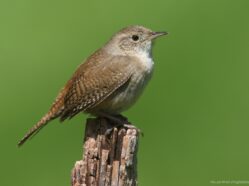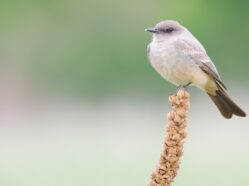A “wrenaissance” for House Wrens; species and genus splits for Barn Owls and Plovers; and lumping of Redpolls included in 2024 Check-list changes
CHICAGO — July 18, 2024 — The 65th Supplement to the American Ornithological Society’s (AOS’s) Check-list of North American Birds, published today in Ornithology, includes several updates to the classifications of bird species found in North America, Central America, and the Caribbean. A few highlights from this year’s supplement, detailed below, include species splits for …


